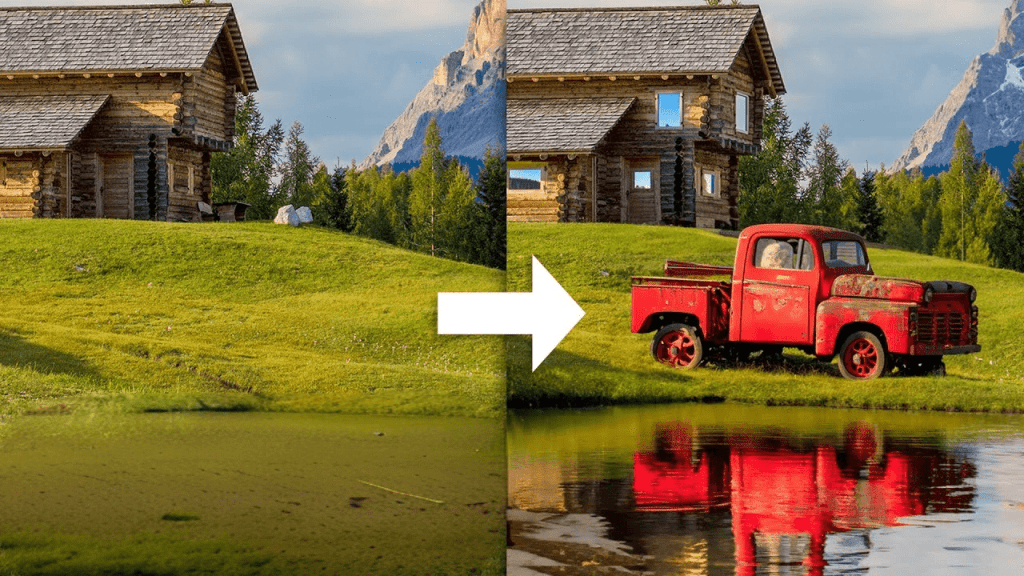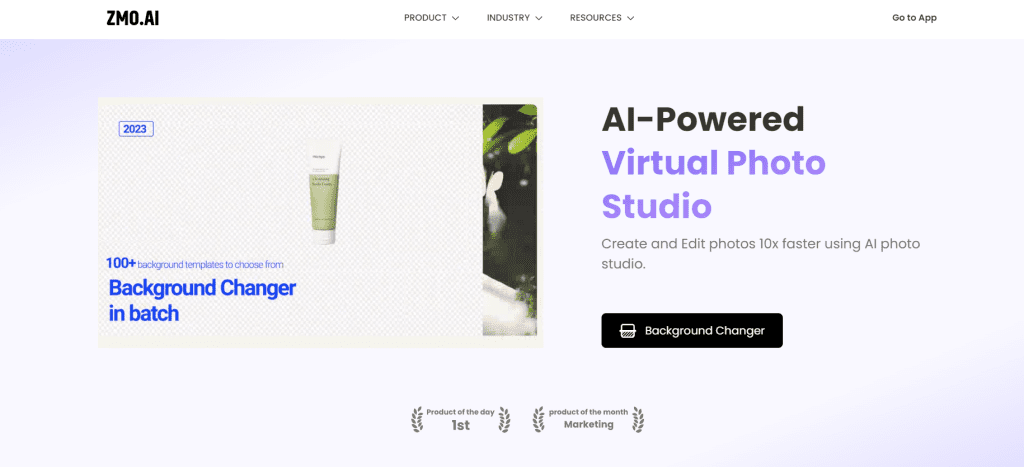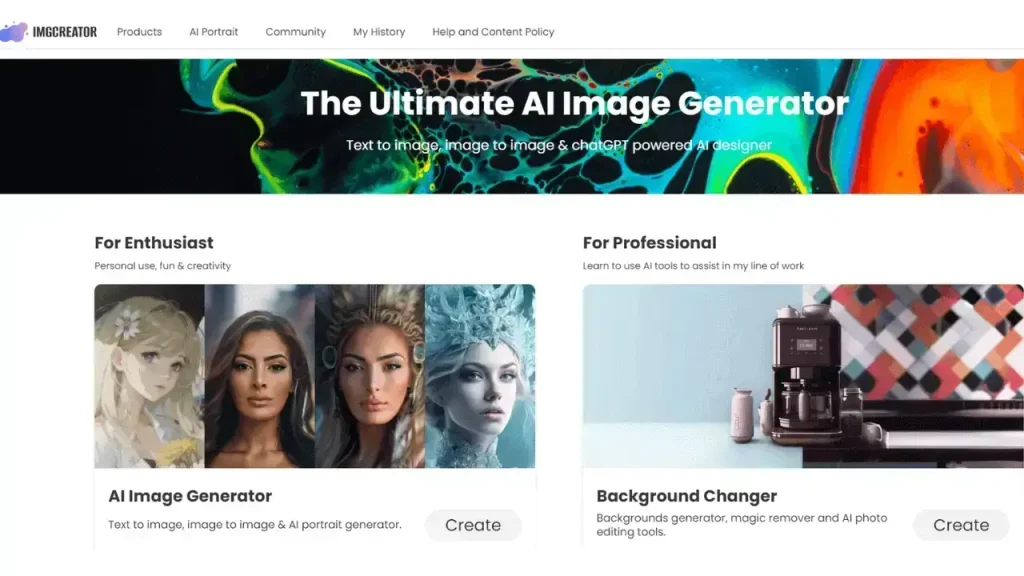Introduction: what is the easier AI photo editor?
In the dynamically evolving digital realm, photo editing has become considerably more straightforward and accessible, thanks to AI technology. One pertinent question that often arises is: What is the easier AI photo editor? This article illuminates the ease of use incorporated with AI photo editing tools, as we navigate the different aspects of this blossoming technology.
Outline
- Introduction
- What is AI Photo Editing?
- How Does AI Photo Editing Work?
- Learning Mechanism
- Object Detection and Removal
- Benefits of Using an AI Photo Editor
- Ease of Use
- Enhanced Quality
- Speed and Efficiency
- Notable AI Photo Editors
- Standalone AI Editors vs. Platforms: ZMO.AI as an Example
- Standalone AI Editors
- Overview of ZMO.AI
- Comparing Features
- What Makes an AI Photo Editor Easier to Use?
- How to Choose Your AI Photo Editor
- Conclusion
- FAQs
How Does AI Photo Editing Work?
AI photo editing takes advantage of deep learning to understand content in images.
Learning Mechanism
Advanced algorithms proficiently learn from a wealth of visual data nowadays, absorbing and examining thousands of modified photos through different machine learning techniques. They identify common and unique image features, creating intricate relationships. As they continually improve through iterative learning, these algorithms learn to replicate and predict editing trends, even generating creative and coherent edited images on their own.
The ramifications of these high-tech algorithms aren’t just limited to image editing. They’re set to lead innovations in image recognition tools, automated editing software, and fields like computer vision and AI-powered art. As such, these image-mimicking algorithms could significantly disrupt various tech and creative sectors.

Object Detection and Removal
AI technology has demonstrated a remarkable aptitude in the area of object detection and removal, significantly enhancing the process and outcomes of image cleanup. This innovative development involves recognizing and isolating specific elements within a digital image scenario. Using a combination of machine learning algorithms, AI not only detects but also distinguishes various objects present. Further, it meticulously identifies the object that needs removal, enhancing the overall accuracy and effectiveness of image editing processes.
The impact of this accuracy and efficiency extends far beyond just making the task quicker. It transforms image cleanup from a labor-intensive process into more of an automated procedure, freeing up valuable human resources for higher-order tasks. Typically, the process of object removal in a photo editing setup could entail a significant amount of time and precision. Now, AI has made it feasible to execute cleanup effectively within moments, warranting significant improvements in various industries that rely on image manipulation, like advertising, media, photography, and surveillance.

Benefits of Using an AI Photo Editor
AI photo editors revolutionize the way we interact with digital visuals in numerous ways.
Ease of Use
The rapid tech advancement has redefined our view of what technology can achieve. Zmo.ai, a leading innovator, embraces this progress and offers a uniquely user-friendly interface.
It provides robust, straightforward functionality, making tech accessible not only to professionals but also to those without a strong technical background. Zmo.ai ensures that advanced technologies aren’t a barrier but an opportunity for everyone.
The platform’s easy-to-use design makes use of top-level technology, while keeping user experience intact. It allows non-experts to effectively engage with, use, and benefit from this tech powerhouse, regardless of their technical knowledge.
Zmo.ai values every user’s journey in understanding and applying the technology. The platform is friendly and engaging, catering to both beginners and experts. Its features and functionalities simplify complex tasks and make technology easy to use and understand.
Zmo.ai is democratizing technology, bridging the gap between technical and non-technical users. By making technology more accessible, it’s helping a larger segment of society benefit from it. This innovative stance could redefine our views on interaction between individuals and complex processes, underscoring the power of inclusive design in tech progress. It shows Zmo.ai’s vision: to make technology more usable, accessible, and fundamentally, more human.
Enhanced Quality
Artificial intelligence technology has become revolutionary in the realm of image quality. Offering superior enhancements that exceed what a novice might accomplish manually, AI can drastically improve image definition, contour, color balance, and more. The application of AI technology is not just limited to improving photo clarity; it can also intelligently fill in details, eliminate noise, and refine the overall aesthetic quality. Thus, the implementation of AI vastly transcends traditional manual methods, significantly elevating the standards of image quality and leaving novices behind in terms of capacity to produce such result. The advancements in AI technology empower us to achieve unprecedented levels of image perfection, redefining our perceptions of image quality.

Speed and Efficiency
AI editing tools, specially designed for rapid operations, have revolutionized the realm of photo editing. These advanced technologies can expediently handle high-resolution images, accomplishing the same tasks in a mere fraction of the time that traditional editing software typically requires. This significant time reduction substantially enhances workflow efficiency, marking a significant step forward in the evolution of image editing.
Notable AI Photo Editors
There’s an assortment of capable AI photo editors in the market, including both standalone software and complete AI platforms.
Standalone AI Editors vs. Platforms: ZMO.AI as an Example
While standalone AI editors are designed to cater to specific tasks, platforms like ZMO.AI encompass various tools to provide a more comprehensive solution.
Standalone AI Editors
Photo editors are generally constructed with a specific goal in mind, such as automatic photo enhancement, which allows them to carry out their responsibilities with high precision and effectiveness. Rather than encompassing a broad spectrum of functionalities, these tools are fine-tuned to deliver optimal performance in their niche areas. This singular focus lends itself to improving their efficiency in enhancing photos automatically, facilitating users to achieve their desired outcomes facilitated by the advanced algorithmic capabilities of these editing tools.
Overview of ZMO.AI
ZMO.AI, an AI-driven content engine, offers users a plethora of features, such as the Remover.app, which can efface any undesired elements in a photo in seconds. It also includes a Background remover and changer, allowing for versatile manipulation of images.

Comparing Features
ZMO.AI stands apart from standalone editors due to its comprehensive suite of tools aimed at providing a robust user experience. While editors focus chiefly on their specialized applications, this platform extends its reach, delivering a broader portfolio of capabilities. No matter whether you need basic editing functions or advanced features, ZMO.AI promises to deliver without setting aside quality. In essence, it has been designed as a one-stop solution to meet a wide range of user needs without compromising the editing prowess you’d expect from a specialized tool.
Quality is an aspect ZMO.AI doesn’t compromise with. The platform’s core strength is the marriage of expanded functionality and exceptional quality, ensuring users can complete their tasks with the highest standards in place. Merging an array of capabilities with top-notch quality differentiates this platform from standalone editors. By incorporating a dynamic mix of essential and advanced tools, ZMO.AI offers its users a comprehensive experience that simplifies interaction while maintaining outstanding quality, paving the way for a superior holistic editing experience.

What Makes an AI Photo Editor Easier to Use?
The AI editor’s performance and reliability also fundamentally influence the user’s experience. This refers to how well the editor functions in real-world tasks; whether it executes commands effectively, has minimal bugs or errors, and provides an uninterrupted workflow. An unreliable system can often frustrate users, decreasing their overall productivity. Hence, a highly reliable AI editor is much sought after for its consistent performance and uninterrupted service.
Lastly, consider the ongoing support and customer service provided by the editor’s company. The availability of a competent and prompt support team ready to assist with any issues or questions can often be a deciding factor for many users. The value of easily accessible expert assistance when dealing with complex AI systems cannot be overstated.
How to Choose Your AI Photo Editor
Selecting the right AI editor depends on your specific needs and comfort with complexity. For beginners in AI, user-friendly options like ZMO.AI are useful because they offer automated features requiring less human input. Conversely, advanced users may prefer AI editors that offer flexibility and customization in settings. Thus, choosing an AI editor is about matching it to your level of understanding and needs—beginners can lean on intuitive, automated platforms like ZMO.AI, while advanced users may seek software allowing more customization control.
Conclusion
The diverse sea of AI photo editors has made finding a straightforward option a daunting task. However, your preferences, combined with an understanding of the available tools’ capabilities and features, can help you identify the software that will best suit your needs, and navigate the AI-driven future of photo editing with ease.
FAQs
- What is AI photo editing?
AI photo editing is a process that employs machine learning algorithms to enhance images, often simulating human-like adjustments such as tweaking brightness, contrast, applying filters, and more. It reduces the need for manual work and simplifies the editing process, delivering high-quality results.
- Are AI photo editors better than traditional editing tools?
Whether an AI photo editor is “better” than traditional editing tools depends largely on the user’s needs and skills. AI photo editors offer a high degree of automation, speed, and easy-to-use interfaces, making them ideal for beginners or non-experts. They can manage complex image processing tasks and produce professional-grade results. In contrast, traditional tools might offer more fine-grained control and customization, which could be preferable for professional photographers or advanced users.
- How does an AI photo editor enhance the quality of images?
AI photo editors enhance the quality of images by understanding and replicating professional edits on a large scale. They can automatically adjust elements such as lighting, contrast, and saturation. They can also detect and remove unwanted objects and imperfections, replace backgrounds, and apply sophisticated filters, significantly improving the overall aesthetics of the photos.
- What is the advantage of using an AI platform like ZMO.AI over standalone AI editors?
An AI platform like ZMO.AI offers a comprehensive suite of editing features, making it a versatile solution for a wide range of photo editing needs. While standalone editors are often designed for specific tasks, ZMO.AI integrates various tools like the Remover.app, Background Remover, and Background Changer. This delivers a streamlined editing experience, allowing users to perform multiple edits within a single platform. It’s essentially a one-stop-shop for all your editing needs.
- What should I consider when choosing an AI photo editor?
When choosing an AI photo editor, consider factors such as ease of use, the quality of the final output, the software’s ability to handle complex tasks, automation features, and your needs and competence levels. If you’re a beginner, an intuitive and fully featured platform like ZMO.AI may be a good choice. For advanced users or professionals, a solution with in-depth customization options could be more suitable. Don’t forget to factor in the cost and see if it aligns with your budget.

